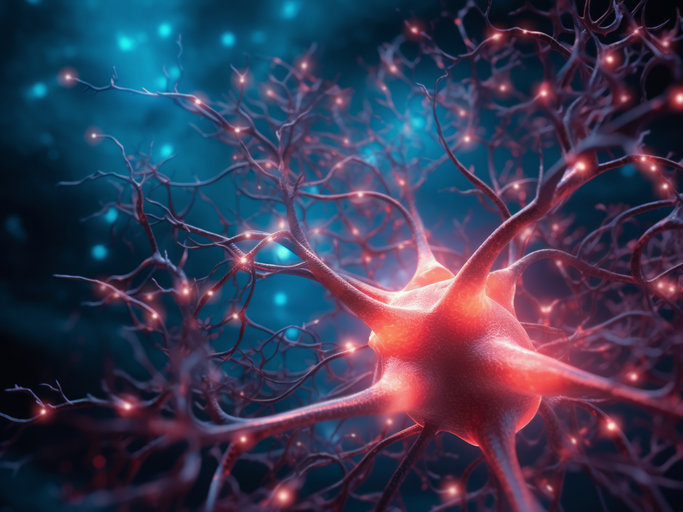The Impact of Modafinil on Neuroplasticity
Definition of Modafinil
Modafinil is a wakefulness-promoting agent primarily used to treat sleep-related disorders such as narcolepsy, sleep apnea, and shift work sleep disorder. It is known for its cognitive-enhancing effects, which have made it popular among students and professionals seeking to improve focus and productivity.
Definition of Neuroplasticity
Neuroplasticity, also known as brain plasticity, refers to the brain’s ability to reorganize itself by forming new neural connections throughout life. This adaptability allows the brain to recover from injuries, adapt to new learning experiences, and adjust to changes in the environment.
Purpose of the Article
This article aims to explore the impact of Modafinil on neuroplasticity, examining both the potential benefits and risks. By understanding how Modafinil influences brain plasticity, we can better assess its therapeutic potential and ethical implications.
Mechanisms of Action
Modafinil’s Pharmacological Profile
Modafinil is a unique compound that differs from traditional stimulants like amphetamines and methylphenidate. It primarily affects the dopamine transporter, increasing dopamine levels in the brain. Additionally, it elevates hypothalamic histamine levels, promoting wakefulness. Despite its stimulant-like effects, Modafinil’s exact mechanism of action remains under debate.
Neuroplasticity Mechanisms
Neuroplasticity involves changes in synaptic strength, known as synaptic plasticity. Two key processes are long-term potentiation (LTP), which strengthens synaptic connections, and long-term depression (LTD), which weakens them. Neurotransmitters like dopamine and glutamate play crucial roles in these processes, affecting how neurons communicate and adapt.
Modafinil’s Effects on Neuroplasticity
Cognitive Enhancement
Modafinil is known for its cognitive-enhancing properties, particularly in improving working memory and executive function. Studies have shown that Modafinil can enhance performance on various cognitive tasks, making it popular among students and professionals seeking to boost their productivity.
Synaptic Changes
Modafinil’s impact on synaptic plasticity involves the modulation of AMPA and NMDA receptors, crucial for synaptic strength and plasticity. Research indicates that Modafinil can enhance synaptic strength and increase dendritic spine density, contributing to improved cognitive function.
Comparative Analysis with Other Cognitive Enhancers
Methylphenidate (Ritalin)
Methylphenidate, commonly known as Ritalin, is another cognitive enhancer primarily used to treat ADHD. It works by increasing dopamine and norepinephrine levels in the brain. Studies comparing Modafinil and Methylphenidate show that both can enhance cognitive function, but they have different mechanisms and potential side effects.
Ampakines
Ampakines are a class of cognitive enhancers that modulate AMPA receptors to enhance synaptic plasticity. Unlike Modafinil, which primarily affects dopamine, Ampakines directly influence glutamate signalling. They show promise in improving cognitive function but also carry potential risks, particularly in developing brains.
Age and Developmental Considerations
Effects on the Juvenile Brain
The impact of Modafinil on the juvenile brain raises significant concerns. Studies indicate that developing brains are more sensitive to changes in neurotransmitter levels. Excessive dopamine and norepinephrine can impair cognitive function and behavioural flexibility, highlighting the need for caution when considering Modafinil for younger individuals.
Studies on Adolescents and Young Adults
Research on adolescents and young adults shows mixed results. While Modafinil can improve academic performance and cognitive function, it also poses risks for developing brains. Potential long-term consequences include altered neuroplasticity and behavioural rigidity, emphasizing the importance of further research and careful consideration in this age group.
Potential Risks and Ethical Considerations
Neurotoxicity and Overuse
One of the primary concerns with Modafinil is the risk of neurotoxicity and overuse. Excessive dopamine and norepinephrine levels can lead to neuronal damage and addictive behaviours. It is crucial to monitor usage and ensure that individuals do not exceed recommended doses to minimize these risks.
Ethical Issues
The ethical implications of cognitive enhancement with Modafinil are significant. Issues of fairness and accessibility arise, as not everyone has equal access to these drugs. The comparison to the steroid debate in sports is relevant, highlighting concerns about unfair advantages and the pressure to use cognitive enhancers to stay competitive.
Clinical and Therapeutic Implications
Therapeutic Potential in CNS Diseases
Modafinil has shown promise as a potential treatment for various central nervous system (CNS) diseases. It has been explored as a therapeutic option for neurodegenerative disorders such as Alzheimer’s disease, Parkinson’s disease, and multiple sclerosis. The drug’s ability to enhance wakefulness and cognitive function makes it a valuable adjunct in managing these conditions. Clinical studies have demonstrated improvements in mood, alertness, and overall cognitive performance in patients with these disorders, suggesting that Modafinil could be a beneficial addition to existing treatment regimens.
Future Research Directions
While current research highlights Modafinil’s potential, there is a need for more extensive, long-term studies to fully understand its safety and efficacy. Future research should focus on age-specific effects, particularly in juveniles and adolescents, to determine the optimal dosing and minimize potential risks. Investigating the drug’s impact on different aspects of neuroplasticity, such as synaptic pruning and long-term potentiation, will provide deeper insights into its mechanisms and therapeutic applications.
Conclusion
Summary of Key Findings
Modafinil has a significant impact on neuroplasticity, enhancing cognitive function and promoting wakefulness. Its effects on synaptic plasticity involve the modulation of key neurotransmitters and receptors, contributing to improved memory and executive function. However, the drug also poses potential risks, particularly for developing brains, where excessive neurotransmitter levels can impair cognitive and behavioural flexibility.
Final Thoughts
Modafinil offers promising benefits for cognitive enhancement and as a therapeutic agent for CNS diseases. However, cautious and informed use is essential to minimize risks and maximize benefits. Further research is needed to establish comprehensive safety and efficacy profiles, particularly for younger individuals. As the field of cognitive enhancement continues to evolve, understanding Modafinil’s role in neuroplasticity will be crucial in shaping its future applications.








